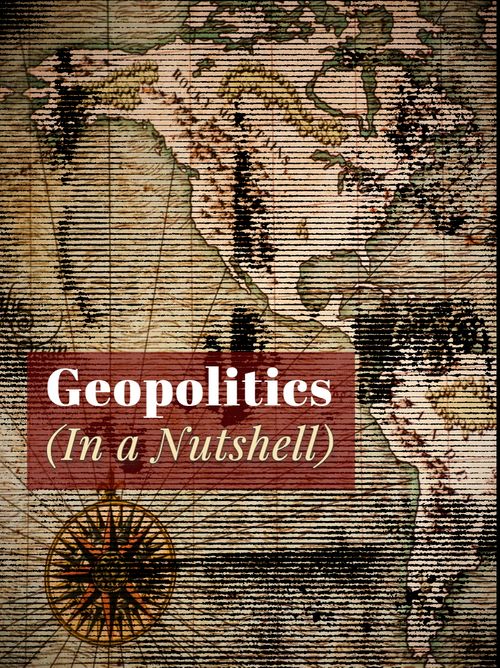Geopolitics explained: Key examples of how location impacts power
Oct 14, 2021 · 2 mins read
0
Share

The ‘why’ of any historical, social, cultural, or political phenomenon comes down to geography surprisingly often. Not only has it been a decisive factor in the shaping of civilization – but when world leaders underestimate it, the costs can be catastrophic.
Save
Share
My favorite book on this subject is Prisoners of Geography by journalist Tim Marshall. In it, he explains how the likes of physical landscape, climate, and access to resources form the basis of world politics in the past, present, and future.
Save
Share
Geography has made some places luckier than others. Europe is blessed with the ideal conditions for cultivating crops; it’s largely spared from earthquakes and volcanoes; its rivers provide perfect transport routes between regions. This gave it a massive competitive advantage.
Save
Share
In contrast, Africa – despite being the cradle of humankind – never had the terrain or climate to develop as quickly. Worse still, many of its conflicts can be traced back to irresponsible European cartography and its seemingly arbitrary divisions across the continent.
Save
Share
Not even a country as big as China can escape geographical constraints. Why does it feel the need to keep Tibet out of India’s hands? The country’s three great rivers all originate in the Himalayas, meaning India could control China’s water supply. Annexing Tibet prevents that.
Save
Share
Despite spanning 11 time zones and 14 borders, Russia’s lack of warm-water ports has prevented it from operating as a true global power. But when it annexed Crimea from Ukraine in 2014, citing the protection of “ethnic Russians”, the move also secured access to the Black Sea.
Save
Share
In the future, the impact of climate change on the Arctic could reshape world trade and politics. As much as 5.5 million square miles of ocean will open up if Arctic ice continues to melt. With that comes new shipping routes, undiscovered resources… and a delicate power struggle.
Save
Share
How we approach (and perhaps solve) major world problems such as water security, climate change, mass migrations, and regional conflict may also be a good predictor of what happens as the space race – the ultimate geographical frontier – heats up again.
Save
Share
Why is this so likely? Geopolitical dilemmas are consistently motivated by the same desires: to safeguard what a nation already has or to gain a new advantage. Marshall admits that this is a fairly bleak reflection of humanity – arguably one verging on geographical determinism.
Save
Share
Geopolitics may have changed in the internet age, but it’s still a fundamental force. No matter how much technology develops, we can’t buck nature. Even the world’s most advanced militaries can be brought to a standstill for days on end with a simple change of the wind.
Save
Share
0